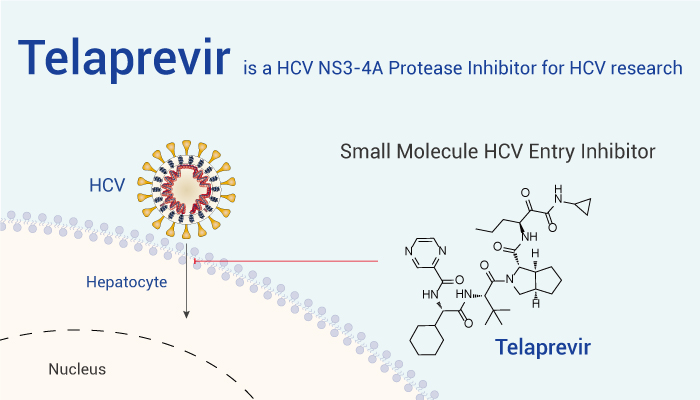Non structural protein 3 (NS3) is a viral non structural protein that is a 70 kDa cleavage product of multiple proteins of hepatitis C virus. Specifically, HCV infection is a serious cause of liver disease worldwide. This can lead to progressive fibrosis and may lead to cirrhosis, hepatocellular carcinoma, liver failure, and death. One of the HCV proteases, NS3-4A serine protease, is a non covalent heterodimer. Besides, it consists of a catalytic subunit (one-third of the N-terminus of the NS3 protein) and an activating cofactor (NS4A protein), responsible for the four sites of the HCV multi protein. Moreover, the HCV NS3/4A protein is a membrane targeted serine protease responsible for the maturation of multiple viral proteins. Furthermore, it cleaves four non structural (NS) sites to generate mature NS3, NS4A, NS4B, NS5A, and NS5B proteins. Nonetheless, this domain is crucial for the maturation of multiple viral proteins and helps HCV evade host innate antiviral immunity. Therefore, the NS3/4A protease represents an attractive target for drug discovery. Here, we will introduce a HCV NS3-4A protease inhibitor, Telaprevir.
Telaprevir is a HCV NS3-4A Protease Inhibitor for HCV Research.
Firstly, Telaprevir (VX-950) is a highly selective, reversible, and potent peptidomimetic inhibitor of the HCV NS3-4A protease. Meanwhile, the steady-state inhibitory constant (Ki) of Telaprevir is 7 nM against a genotype 1 (H strain) NS3 protease domain plus a NS4A cofactor peptide. In particular, Telaprevir inhibits SARS-CoV-2 3CLpro activity.
Secondly, Telaprevir is additive to moderately synergistic with IFN-α in inhibiting HCV replication and in suppressing the emergence of resistance in replicon cells. Importantly, Telaprevir reduces HCV RNA levels in a time- and dose-dependent manner.
Again, there is an ~5-fold reduction of serum SEAP activity in mice dosed with Telaprevir at either 10 or 25 mg/kg. Additionally, Telaprevir is able to inhibit the HCV NS3-4A serine protease activity in mouse liver. Telaprevir blocks cleavage and subsequent secretion of SEAP into blood circulation in these mice.
All in all, Telaprevir is an HCV NS3-4A protease inhibitor for HCV research.
References:
Perni RB, et al. Antimicrob Agents Chemother. 2006 Mar;50(3):899-909.
